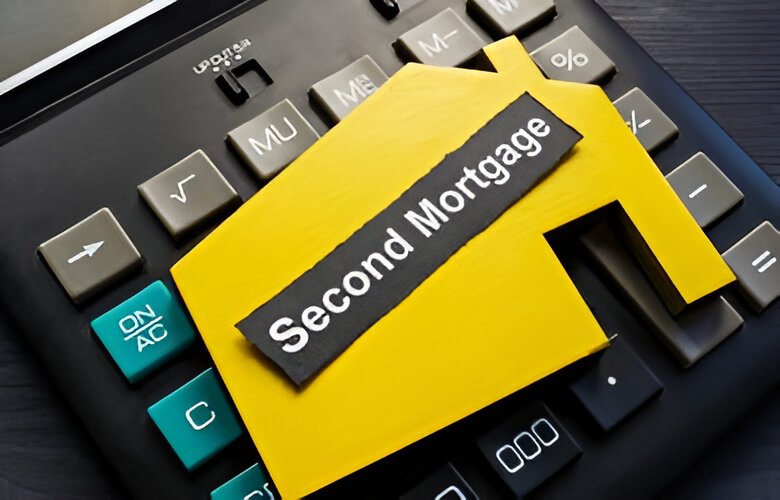What are Private Mortgage Lenders?
Private mortgage lenders are businesses and individuals who lend their own money to others. Mortgage Investment Corporations, for example, aggregate money from individual investors to fund syndicated mortgages.
Private mortgages are often shorter in duration and have higher interest rates and costs than standard mortgages. They are intended to be a stopgap measure before returning to traditional mortgage lenders.
Why Should I Consider a Private Mortgage Lender?
If your credit score is below 600, you’ll most definitely require a private lender. Your credit score can be used by mortgage lenders to assess your financial health, which might affect whether or not you are approved for a loan. Your credit score will rise if you don’t miss any payments, have a low credit utilization rate, have a low (or zero) credit card debt, and have a long credit history.
CMHC mortgage insurance requires a minimum credit score of 600. Due to the fact that most B Lenders deal with insured mortgages, being unable to qualify for a CMHC guaranteed mortgage will rule you out of many B Lenders. If you make a down payment larger than 20%, lenders may need you to purchase mortgage insurance.
This is when you should turn to private lenders, who can get you the mortgage you want with the lax requirements you need.
Who Can Private Mortgage Lenders Help?
Traditional lenders leave a void in the market, which is filled by private mortgage lenders. Those with a limited credit history in Canada, such as new immigrants, may face additional challenges when applying for a mortgage.
New Immigrants
Due to the fact that Equifax and TransUnion only collect credit information from Canadians, anyone with a foreign credit history may have to start over. Mortgage for Newcomers to Canada may also have minimal work experience in the country. However, exceptions can be made by some private lenders. For new immigrants to Canada who do not have at least two years of Canadian work experience, RBC mandates a minimum 35 percent down payment. A letter of recommendation from the mortgage applicant’s home bank would also be required by RBC.
Self-Employed/Irregular Income
To demonstrate that they have a consistent source of income, banks frequently need two years of employment history. This is why getting a self employed mortgage with a bank might be difficult, especially if your income is inconsistent and changes a lot. This has a particularly negative impact on those whose earnings are based on commission or tips.
With a private lender, you can easily get a mortgage based on factors other than your employment history, such as your home equity or even have similar but less stringent requirements like having to present documents of six months.
Foreign Income
Foreign income may make it more difficult to qualify for a mortgage, particularly if it is difficult to verify or identify. There are, however, exceptions. According to reports from 2016, BMO requires overseas clients to make a down payment of at least 35% to be eligible for a mortgage. If a down payment of less than 50% is made, Scotiabank is deemed to need identification of foreign income sources.
This can be a tricky and tedious process for borrowers looking to get a quick mortgage. With a private lender, you can easily lease your foreign income without having to present too much documentation.
Private Mortgages as Temporary Funding
Private lender mortgages are designed to bridge the gap for those who are experiencing temporary financial difficulties. A private lender can be a band-aid option until your financial position improves if you have just lost your job, divorced, or faced unanticipated hefty bills.
They can also serve as a bridge loan as you look for longer-term financing, such as funding the down payment on a new house while you wait for your present property to sell. It can also be used to temporarily fund renovations in order to increase the value of a home. Private lenders’ short response times allow you to get funding quickly, with some lenders, such as Freedom Capital, even providing same-day approvals.
How Do I Find a Private Mortgage Lender?
Because of regulations or to make sourcing easier, most private mortgage lenders exclusively engage via mortgage brokers. These mortgage brokers will assist you in determining the appropriate form of mortgage for your needs, negotiating with lenders, and submitting documentation on your behalf. The lender may compensate mortgage brokers. If they earn a commission or other form of compensation, they must inform their client of the amount.
Private Lenders vs Banks
When it comes to getting a mortgage, a borrower’s primary concern will always be the qualifications. If your lender requires documents you cannot provide or has benchmarks and expectations you cannot meet, then there is no point in applying to them.

This can be said for a traditional bank lender.
Traditional A lenders, such as Canada’s Big Six Banks (RBC, TD, Scotiabank, BMO, CIBC, and National Bank), chartered banks, and credit unions, turn down private mortgage lenders. In Canada, banks are regulated by the federal government and must undertake a mortgage stress test to assess if you can afford your mortgage payments if interest rates rise.
Some provincially regulated financial organizations, such as credit unions, conduct a mortgage stress test, however it is not mandated. What happens if you fail a stress test for a mortgage? Even though you may meet all of the other conditions, such as credit score, if you fail the mortgage stress test, the lender will not lend to you. Mortgage stress tests are not required by private mortgage lenders and are a good option for borrowers who failed the test.
Banks: Pros and Cons
Existing banking customers are frequently offered extra bonuses or discounts by banks. They might even have their own in-house lending solutions tailored to specific buyer demographics, such as self-employed or investor purchasers.
In order to maximize revenue, banks may try to sell other financial products throughout the loan process. Offering specialized savings or checking accounts, credit cards, or other products in return for better mortgage terms is one example.
Because bank loans are subject to federal compliance and reporting rules, they frequently come with tougher lending standards. If you have less-than-perfect credit or a severe financial catastrophe (such as a foreclosure or bankruptcy) on your record, this may make it more difficult for you to qualify. It also takes longer in most cases.
Pros
- Interest rates may be lower.
- Existing bank customers may be eligible for special rates or benefits.
- After the loan is closed, the bank will most likely continue to service it.
- It’s possible that customized and niche-specific financing schemes will be available.
Cons
- Lending rules are more stringent.
- There is a smaller selection of loan products.
- There is a lack of mortgage lending knowledge.
- Increased compliance standards have resulted in higher fees.
- Additional banking products can be cross-sold.
- Longer hours of operation.
Mortgage Lenders: Pros and Cons
Since these lenders are frequently less regulated than banks, they can tailor loan recommendations to the buyer’s specific financial needs and home-buying objectives. Mortgage loan originators must pass a number of mortgage-related courses and tests, demonstrating a high level of expertise in the sector.
Because some of these mortgage lenders are only available online, you may not receive the same level of customer support.
After a loan is closed, mortgage lenders frequently sell the servicing rights to servicing organizations. That means you won’t be able to choose who you pay or deal with in the end, even though your mortgage rates and terms can’t change after the transaction.
Pros
- More lending expertise and training.
- More willing to work out a deal.
- There are more lending choices available.
- Better loan advice and help.
- Loans are closed more quickly.
Cons
- It’s possible that it won’t have a physical location.
- After closing, the lender may sell your loan to another servicer.
See Also: Commercial Mortgage in Vancouver
Private Mortgage Lenders vs B Lenders
B Lenders, such as Mortgage Finance Companies (MFCs), are quasi-regulated lenders that are not directly controlled by the federal government but are subject to regulations through their business. Private mortgage lenders and B Lenders are not required to undergo a mortgage stress test, and their lending rules are less stringent than those of A Lenders.
B Lenders, who are often larger financial institutions, specialize in insured mortgages. This indicates that the loan-to-value (LTV) ratio is greater than 80%, implying that a down payment of less than 20% was made. There are certain restrictions for CMHC mortgage insurance, such as a minimum credit score, a purchase price cap, and an amortization period limit. CMHC mortgage insurance can be replaced with private mortgage insurance from companies like Canada Guaranty and Sagen.
Private Lender Fees
In Canada, private financing are free to determine their own costs and lending terms. A given fee may be charged by one private lender, whereas another may charge a considerably greater price or have different terms.
One private lender may charge 8% with no fees, while another may charge 6% with fees, resulting in an effective yearly rate of 9% after fees. Comparing lenders only on the rate they offer ignores any other fees that might have a significant impact on the total cost of borrowing for your mortgage.
Private loan costs, brokerage fees, and legal and appraisal fees are all fees that might be levied in addition to the mortgage rate. There could also be setup or management costs. Fees also differ based on the type of property and its location.
Prudent Financial, for example, advertises private mortgages with interest rates as low as 5.75 percent. However, after fees are taken into account, the annual percentage rate (APR) might range from 10% to 19%.
Types of Private Mortgage Lenders
Instead of lending money from consumer deposits, private lenders use their own money. This can range in size from large investment corporations that employ money from private investors to small individuals who lend out their own money.
The largest sort of private mortgage lender is a Mortgage Investment Corporation (MIC). By the end of 2020, Atrium Mortgage Investment Corporation, one of Canada’s largest MICs, had $745 million in mortgages. MICs pool funds from investors to fund a range of different mortgages, hence reducing risk. MIC investors earn interest payments.
A Syndicated Mortgage is one that is funded by a group of people. Licensed mortgage brokers are typically in charge of syndicated mortgages. These are a little different from traditional private lenders, as a private lender is someone who lends their own money to another person on a one-to-one basis.
Some private lenders may specialize in lending to people with poor credit. Other private lenders may concentrate their efforts on debt consolidation or home equity loans. The following are examples of private mortgage lenders:
- Bad Credit Private Mortgage Lenders
- Home Equity Loans
- Second Mortgages and Third Mortgages.
- Agricultural Private Lenders
- Debt Consolidation or Renovation Refinancing
- Commercial Financing or Industrial Private Lenders








